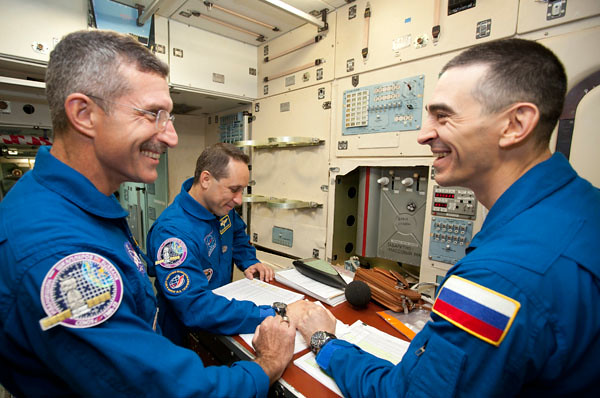Cosmonaut Alexander Viktorenko, who completed four missions to Mir space station, passes away at the age of 76
On August 10, 2023, the world mourned the loss of Russian cosmonaut Alexander Viktorenko, who passed away at the age of 76. Viktorenko was a pioneer in the field of astronautics, making significant contributions to the history of space exploration. Over his 19-year career, he commanded four missions to the Mir space station and played a crucial role in various groundbreaking activities.
Viktorenko’s first launch took place on July 22, 1987, when he embarked on a week-long mission to deliver fellow Soviet cosmonaut Alexander Aleksandrov to Mir. This mission also involved accompanying Syrian cosmonaut Muhammed Faris to and from the space station. Notably, it marked the first time a Mir crew launched on one spacecraft and landed on another.
In his second mission, which began on September 5, 1989, Viktorenko commanded Soyuz TM-8 and led the fifth expedition to Mir alongside cosmonaut Alexander Serebrov. During their 166 days in space, the duo oversaw the arrival and installation of Kvant-2, the third module and second major addition to the Mir space station. They also conducted five spacewalks, with Viktorenko participating in the testing of the “space motorcycle” called Ikarus. This unique device allowed cosmonauts to maneuver around the space station, similar to NASA’s manned maneuvering unit (MMU).
Viktorenko’s third visit to Mir was significant as it represented the Russian Federation’s first launch into space after the fall of the Soviet Union. On March 17, 1992, he led the Soyuz TM-14 crew alongside Alexander Kaleri and Klaus-Dietrich Flade from Germany. During this mission, Viktorenko and Kaleri conducted their sixth and final spacewalk, focusing on repairing Mir’s stabilizing gyroscope and testing binoculars for inspecting hard-to-reach areas on the space station’s exterior.
Finally, on October 3, 1994, Viktorenko embarked on his fourth and final spaceflight. This mission was particularly significant as it marked the first long-duration spaceflight for a female cosmonaut, Yelena Kondakova. The crew also included Ulf Merbold, the first West German citizen to fly into space. During this mission, Viktorenko witnessed the historic rendezvous between the U.S. space shuttle Discovery and Mir. As Discovery approached the Russian space station, he expressed unity by radioing, “We are one. We are human.” Viktorenko concluded his time in space by handing over command to the first Soyuz/Mir crew with an American astronaut, Norm Thagard.
In total, Alexander Viktorenko spent an impressive 489 days, one hour, and 33 minutes in space, including 19 hours and 39 minutes on six spacewalks. His contributions to astronautics were not only significant but also inspiring.
Born on March 29, 1947, in the Kazakh village of Olginka, Viktorenko overcame numerous challenges throughout his career. Before his first flight into space, he faced setbacks such as burns, a fall, and a brain concussion resulting from errors in an altitude chamber. However, he persevered and eventually became eligible for mission assignments.
After retiring from active spaceflight, Viktorenko became an instructor at the Gagarin Cosmonaut Training Center, sharing his knowledge and experience with future generations of cosmonauts. The center’s staff expressed their deep admiration for Viktorenko’s selfless service to his country, highlighting his courage, fortitude, high civic duty, and devotion to his chosen cause.
Alexander Viktorenko leaves behind a legacy that will forever be remembered. He was married to Raisa Ivanovna and had two children, Oksana and Aleksei. A memorial service and funeral were held on August 12 at the Federal Military Memorial Cemetery of Russia’s Ministry of Defense in the urban district of Mytishchi, honoring his remarkable life and contributions to space exploration.
